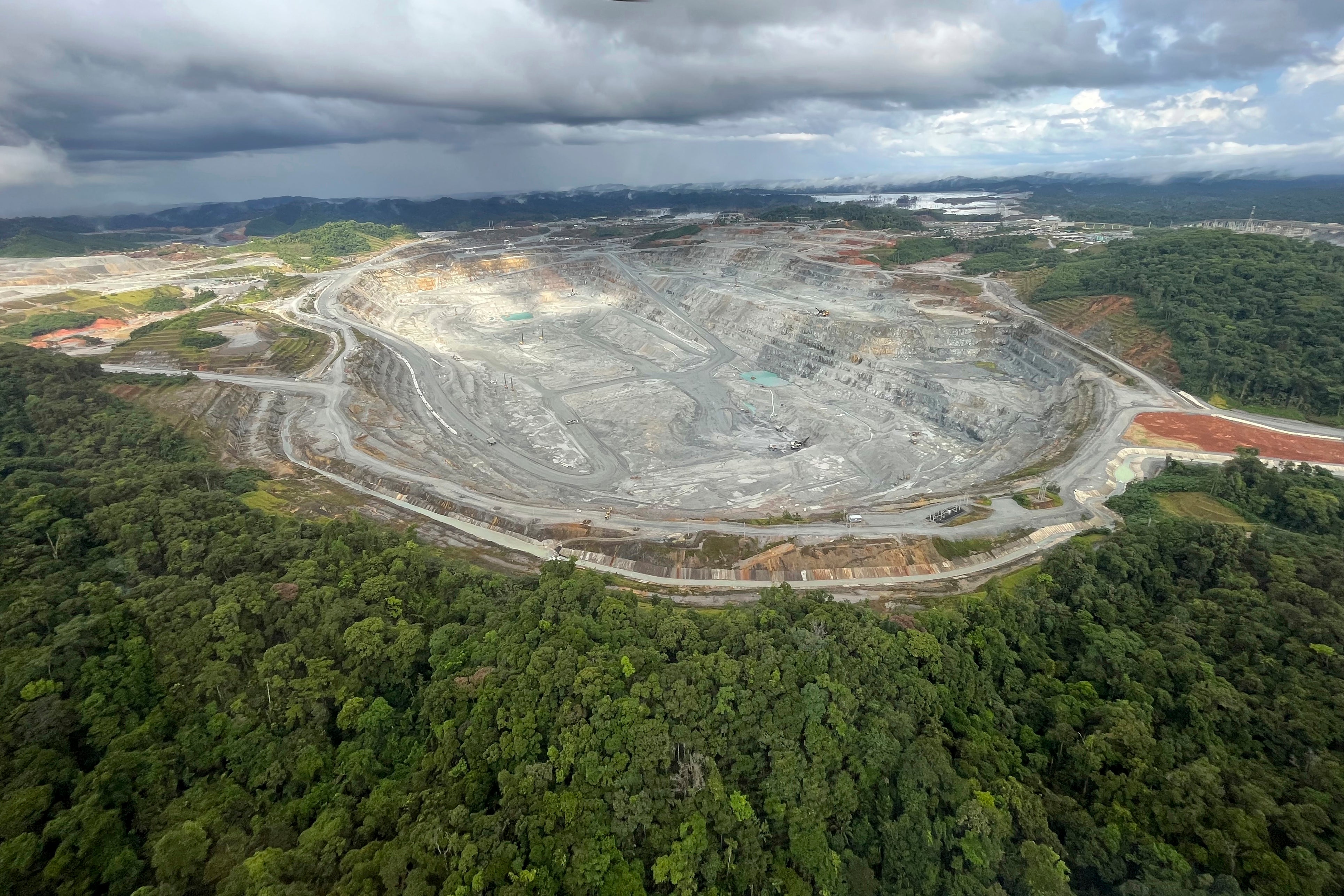Panama reaches 20-year deal with Canadian copper mine
Panama’s government says it has reached an agreement with a local subsidiary of a Canadian mining company that will allow it to operate for 20 years more

Your support helps us to tell the story
From reproductive rights to climate change to Big Tech, The Independent is on the ground when the story is developing. Whether it's investigating the financials of Elon Musk's pro-Trump PAC or producing our latest documentary, 'The A Word', which shines a light on the American women fighting for reproductive rights, we know how important it is to parse out the facts from the messaging.
At such a critical moment in US history, we need reporters on the ground. Your donation allows us to keep sending journalists to speak to both sides of the story.
The Independent is trusted by Americans across the entire political spectrum. And unlike many other quality news outlets, we choose not to lock Americans out of our reporting and analysis with paywalls. We believe quality journalism should be available to everyone, paid for by those who can afford it.
Your support makes all the difference.Panama’s government announced Wednesday that it reached an agreement with a local subsidiary of a Canadian mining company that will allow it to operate for 20 years more.
The government had ordered the company to cease operations at its huge open pit copper mine in December, after it failed to sign a new contract outlining substantially higher payments.
Minera Panama, a subsidiary of Canada’s First Quantum Minerals Ltd., is the largest private investment in the history of Panama. It employs thousands and accounts directly and indirectly for some 3% of Panama’s gross domestic product.
Panama expects to receive $375 million per year in royalty, tax or transfer payments under the new deal, President Laurentino Cortizo’s office said in a statement.
That would be 10 times more than the payments under the old deal, which was signed in the late 1990s. The government said the new deal also includes more labor and environmental protection.
The agreement can be extended for another 20 years.
First Quantum said in a statement in a December that it had already reached agreements that included "a contribution of $375 million in benefits per year with mutually agreed protections.”
But the company said at the time that “necessary legal protections on termination, stability and transition arrangements could not be agreed upon.”